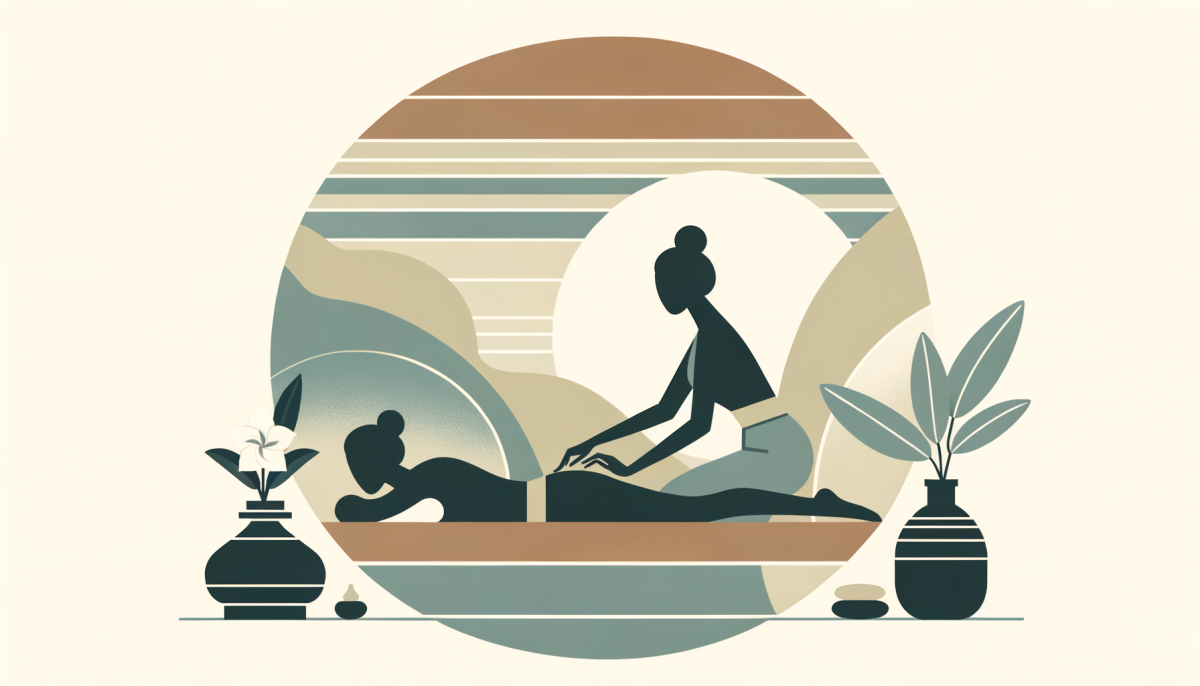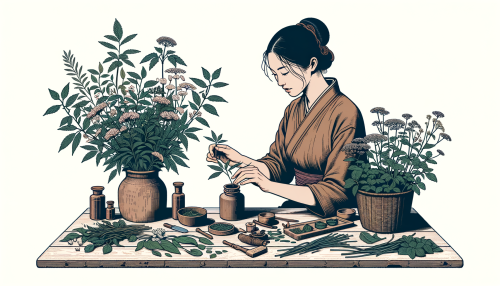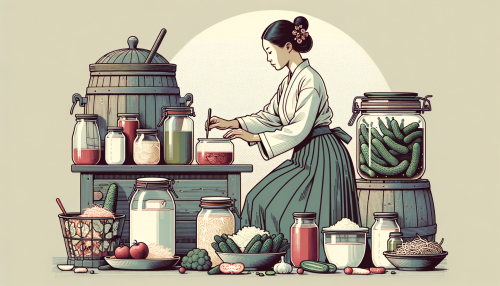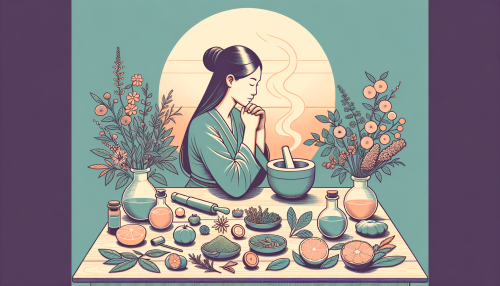Introduction
Immerse yourself in the world of traditional Thai massage, a centuries-old practice that offers a plethora of benefits for your overall well-being. This ancient healing system, steeped in rich history and tradition, intertwines acupressure, Ayurvedic principles, and assisted yoga postures to rejuvenate the body and invigorate the spirit. It’s more than just a simple massage; it’s a holistic approach to wellness that harmonizes the body, calms the mind, and nourishes the soul. As we delve deeper into this topic, we will uncover the myriad of advantages this therapeutic practice brings, from physical relief to emotional tranquility. So, prepare to embark on a journey of discovery, exploring the profound impact of traditional Thai massage on our overall well-being.
Physical Health Benefits

Traditional Thai massage, a centuries-old practice, offers a plethora of physical health benefits. It’s a holistic approach that intertwines the body, mind, and spirit, fostering overall well-being. The physical advantages of this ancient technique are manifold, and they extend beyond mere relaxation.
One of the most significant benefits of Traditional Thai massage is its ability to enhance flexibility. The massage therapist employs a series of stretches that mimic yoga postures, gently coaxing the body into different positions. This process helps to loosen tight muscles, increase range of motion, and improve overall flexibility. The result is a body that moves more fluidly, reducing the risk of injury and enhancing physical performance.
Moreover, Traditional Thai massage is a potent tool for pain management. The therapist applies pressure to specific points on the body, helping to alleviate pain and discomfort. This technique is particularly effective for chronic conditions such as arthritis, sciatica, and migraines. The pressure applied during the massage stimulates the body’s natural painkillers, endorphins, promoting a sense of relief and relaxation.
Additionally, this form of massage can significantly improve circulation. The therapist uses their hands, feet, and elbows to apply pressure, promoting blood flow to even the most remote parts of the body. This increased circulation delivers oxygen and nutrients to the muscles and organs, promoting healing and regeneration. Furthermore, improved circulation can help to lower blood pressure and improve heart health.
In conclusion, Traditional Thai massage offers a myriad of physical health benefits. From increased flexibility and pain management to improved circulation and heart health, this ancient practice promotes overall well-being. It’s a holistic approach that not only addresses physical ailments but also fosters a sense of balance and harmony within the body.
Mental Wellness Advantages
Traditional Thai massage, a centuries-old practice, offers a plethora of mental health benefits that contribute significantly to overall well-being. This ancient technique, steeped in tradition and wisdom, serves as a conduit for the release of mental tension and the promotion of mental clarity. It’s a holistic approach that addresses the mind, body, and spirit, fostering a sense of balance and harmony that permeates every aspect of life.
The first mental wellness advantage of traditional Thai massage is its ability to alleviate stress. In the hustle and bustle of modern life, stress has become a ubiquitous presence, often leading to a host of mental and physical health issues. Thai massage, with its gentle pressure and rhythmic movements, helps to soothe the nervous system, reducing the production of stress hormones. This results in a state of deep relaxation, where the mind can let go of worries and anxieties, fostering a sense of tranquility and peace.
Moreover, Thai massage can also enhance cognitive function. The massage techniques stimulate blood flow to the brain, which can improve concentration and focus. This increased cerebral circulation can lead to sharper thinking, better problem-solving abilities, and enhanced creativity. It’s akin to giving your brain a workout, strengthening its capacity to process information and come up with innovative solutions.
Lastly, traditional Thai massage can also contribute to improved mood and emotional well-being. The physical touch involved in the massage can stimulate the production of endorphins, the body’s natural ‘feel-good’ hormones. This can lead to feelings of happiness and positivity, combatting negative emotions like sadness and depression. Furthermore, the sense of relaxation and calmness that follows a Thai massage session can also promote better sleep, which is crucial for maintaining good mental health.
In conclusion, traditional Thai massage offers a multitude of mental wellness advantages. From stress relief and enhanced cognitive function to improved mood and better sleep, this ancient practice can significantly contribute to overall well-being. It’s a holistic approach that not only addresses physical ailments but also nurtures the mind, promoting mental clarity and emotional balance.
Emotional Balance Enhancement
Traditional Thai massage, a centuries-old practice, has a profound impact on emotional equilibrium. This ancient technique, steeped in tradition and wisdom, is more than just a physical experience; it’s a conduit for emotional harmony. The rhythmic kneading and stretching, the gentle pressure applied to specific energy lines, all work in unison to release emotional blockages. This release fosters a sense of tranquility, helping to balance the emotional state.
The emotional benefits of Thai massage are not merely anecdotal. Scientific studies corroborate the efficacy of this practice in enhancing emotional well-being. The massage stimulates the production of endorphins, the body’s natural ‘feel-good’ hormones, which help to alleviate stress and anxiety. Simultaneously, it reduces the levels of cortisol, the ‘stress hormone’, thereby promoting a sense of calm and relaxation.
Moreover, the practice of Thai massage encourages mindfulness. The meditative state induced during the massage session helps to clear the mind of cluttering thoughts, fostering mental clarity. This heightened awareness of the present moment can lead to improved emotional resilience, helping individuals to better manage stress and emotional upheavals.
In essence, traditional Thai massage is a holistic approach to well-being, addressing not just physical ailments but also emotional imbalances. It’s a therapeutic journey that fosters emotional harmony, reduces stress, and promotes a sense of inner peace. The emotional balance achieved through this practice can significantly enhance overall well-being, making Thai massage a valuable addition to any wellness regimen.
Conclusion
In essence, the salubrious effects of traditional Thai massage are manifold, contributing significantly to holistic well-being. This ancient practice, steeped in rich cultural heritage, offers a panacea for modern ailments, both physical and psychological. It fosters flexibility, mitigates muscular tension, and promotes circulatory health, while simultaneously providing a tranquil respite from the relentless pace of contemporary life. Moreover, it engenders a profound sense of mental tranquility, alleviating stress and fostering emotional equilibrium. Thus, traditional Thai massage emerges not merely as a therapeutic intervention, but as a conduit to comprehensive wellness, harmonizing body, mind, and spirit. It is a testament to the enduring wisdom of traditional practices and their relevance in our modern world.





